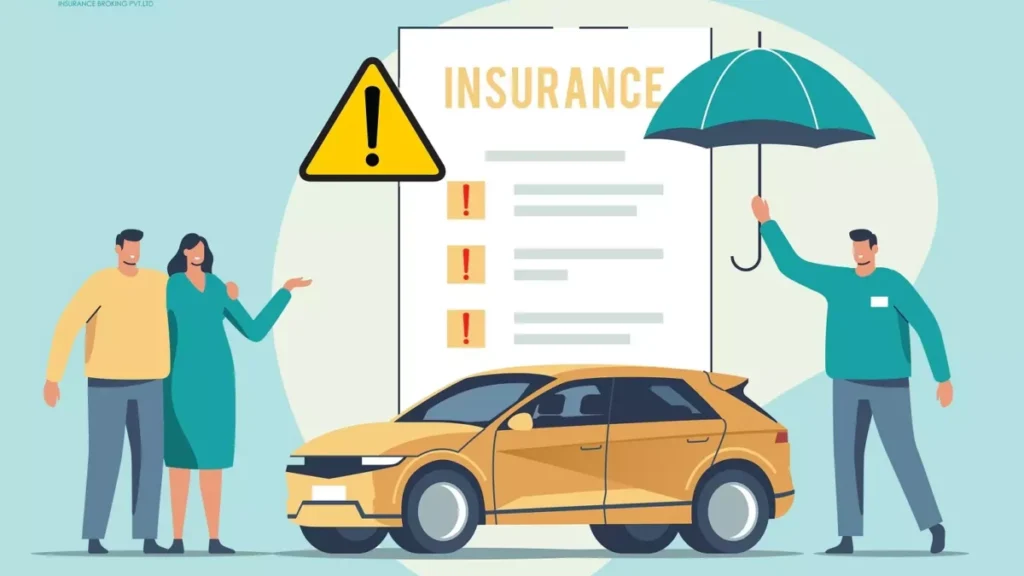Car ownership brings convenience, independence, and pride, but it also comes with responsibilities. One of the most important responsibilities is securing proper insurance coverage. While most vehicle owners understand that insurance is a legal requirement, many still treat it as a formality, quickly purchasing the cheapest available plan without much consideration. This can lead to costly mistakes later on.
Selecting the right car insurance policy, understanding its terms, and managing it correctly are critical to protecting your finances and peace of mind. Whether you’re a first-time buyer or a seasoned driver, avoiding common pitfalls like settling for low coverage or mismanaging your No-Claim Bonus can make a big difference. Here’s a look at five common car insurance mistakes people often make and practical tips on how to avoid them.
1. Don’t Under-Insure Yourself: The Pitfall of Low Coverage
One of the biggest mistakes car owners make is choosing the cheapest plan with minimal coverage. While basic third-party coverage fulfils legal requirements, it doesn’t protect your own car in case of damage, theft, or natural disasters.
Selecting a low-premium car insurance policy without understanding what it actually covers can leave you financially vulnerable. For instance, you may have to pay a significant amount out of pocket if your vehicle is damaged in an accident and your policy doesn’t include own-damage protection or zero depreciation insurance. The latter is especially useful for new cars, as it ensures you receive the full value of replaced parts without depreciation deductions.
How to Avoid: Always evaluate your driving habits, car value, and regional risk factors (like flood-prone areas) before choosing a plan. Investing a little more in a comprehensive policy today could save you a fortune tomorrow.
2. Skipping the Research: Not Exploring Insurance Online
Many buyers still purchase insurance through traditional agents or stick with the same provider year after year, assuming it’s the easiest or safest route. This often leads to overpaying or missing out on better benefits.
Today, it’s easier than ever to compare car insurance online. With just a few clicks, you can review multiple quotes, assess policy features, read reviews, and even spot discounts not available offline. You may discover that one provider offers zero depreciation insurance at a lower rate or includes roadside assistance as a standard feature.
How to Avoid: Use comparison platforms to evaluate at least 3–5 insurers before making a choice. Look for transparent policy documents and hidden exclusions. Also, check if your shortlisted car insurance policy offers features like cashless claim facilities or engine protection.
3. Being Dishonest or Withholding Facts
Another critical error is hiding information or providing incorrect details, either intentionally or unintentionally, while buying vehicle insurance. Whether it’s concealing a past accident, modifying the car without informing the insurer, or stating the wrong age or address, these inaccuracies can result in claim rejection.
Insurance companies verify your personal and vehicle-related information when you file a claim. Any discrepancy can render your claim void, resulting in a loss greater than the savings you achieved during the premium negotiation.
How to Avoid: Always be honest and accurate when filling out insurance forms. If your car has any modifications or you’ve changed your driving location, inform the insurer at the time of buying or renewing the policy.
4. Mismanaging Your No-Claim Bonus (NCB)
The No-Claim Bonus is a discount on your premium for every claim-free year. Many car owners either forget to transfer it when switching insurers or unknowingly lose it by making small claims that could have been managed out of pocket.
For example, if your NCB discount has reached 35% or more, making a claim for a minor repair could cost you significantly more in the long run, as your discount resets. Also, NCB is tied to the individual, not the car, so it can be transferred when you buy a new vehicle or change insurers.
How to Avoid: Think twice before filing small claims. Evaluate whether the NCB loss is worth it. Also, make sure to inform your new insurer about your existing NCB when switching policies to enjoy the rightful discount.
5. Letting the Policy Lapse: Delayed Renewals Can Cost You
Many people treat policy renewals casually, assuming there’s a grace period or that they can renew it later without penalty. In reality, a lapsed car insurance policy can lead to legal and financial trouble. Driving without valid insurance is illegal and exposes you to liability in case of an accident.
Moreover, renewing after a lapse might require a vehicle inspection, loss of accumulated benefits like NCB, and increased premium rates. Some insurers may even refuse to renew lapsed policies or charge higher rates due to the gap in coverage.
How to Avoid: Set reminders for your policy renewal well in advance. Many insurers offer long-term plans or automatic renewal options to help you stay protected continuously.
Conclusion
Avoiding these common car insurance mistakes can go a long way in ensuring you have the right protection when it matters most. Don’t settle for inadequate coverage just to save a few rupees today. Because when you suffer an injury in a car accident, you may need higher coverage. So talk to an experienced car accident lawyer once to know which coverage suits you well. They will recommend a comprehensive coverage that includes features like zero depreciation insurance. Always be honest in your declarations, manage your No-Claim Bonus smartly, and never let your car insurance policy lapse.
Use digital platforms to explore car insurance online options and compare them thoroughly before making a decision. Buying and managing car insurance doesn’t have to be complicated. With the right knowledge and attention to detail, you can secure both your car and your finances with confidence.

